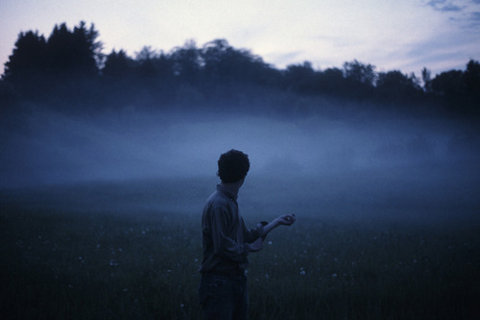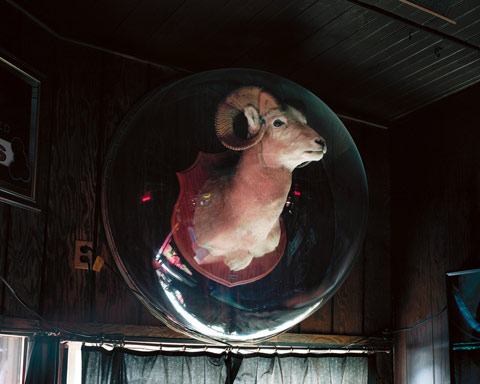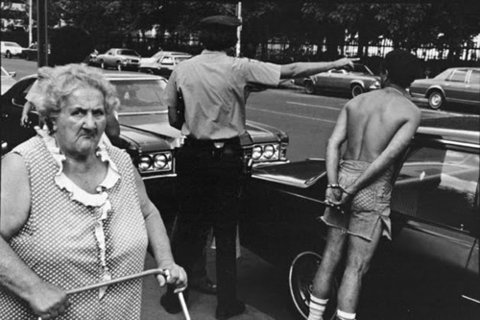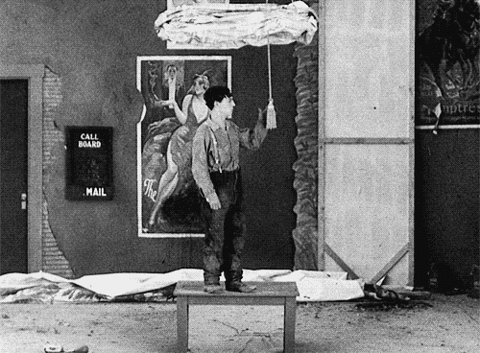Gerry: What is your favourite form of information?
Mike: An old Canadian video artist distinguished between data, which he said was everything flowing in through the sense doors, and processed or patterned data, which he called “information,” the word you’re using. What I hear you asking is: how do you like to pattern data? The obvious answer is: by putting myself at the centre of it all, though as usual, my favourite is not why I prefer.
Gerry: Is this need or want to collect information learned or hardwired?
Mike: Yes.
Gerry: What is your earliest memory?
Mike: Lying on a blanket, a few months old, in a tropical haze, the gate opens and two nuns appear in full habits, bearing milk. Though properly speaking, this memory doesn’t belong to me, but to my mother.
Gerry: Is memory a curse or a blessing?
Mike: My father is losing his memory, and in his new (nursing) home most of his neighbours have long ago left their former lives behind as well. In other words, as old as they are, they are brand new. And because my father can’t remember so much about his fatherly habits and duties, because he’s evacuated the father chair in the family, he’s extended this gift to the rest of us, and allowed us to leave our old spots as well. Who am I today? If not a dutiful or wayward son, father, husband, daughter? His personality reinvention has been a rare and precious kind of gift-making, though like most gifts, it was entirely unwanted.
Gerry: Who were your role models outside your immediate family and how specifically did they affect you?
Mike: I met a poodle late in her life, her name was Layla. She taught me too many things to note, how to greet someone at the door for instance, how to get along with strangers, and finally: how to die. I miss her every day.
Gerry: Were you raised in a particular religion?
Mike: I was raised in the United Church, which was a soft pitch in my neighbourhood. No please don’t worry about getting up for the sacraments, we’ll pass them along the row like party favours. I secretly envied classmates who were raised on the brusk reassurances of atheism, or else the hell fires of a church more driven to deliver the faithful. Surely their inevitable rebellions would prove useful, fertile ground for a tradition of forging new identities out of old truths.
Gerry: Do evil people exist or does evil use people as a vehicle?
Mike: Evil?
Gerry: How do you advise someone to deal with an enemy? Consider Alan Watts: “If you acknowledge your enemy, you empower them.” Coppola stole from the Mob and Samurais: “Keep your friends close and your enemies closer.” Frenemies. JFK: “Forgive your enemy but don’t forget their name.” Fellini: “I need an enemy.” Chinese proverb: “He who cannot agree with their enemy is controlled by them.” Levi-Strauss: “Cannibals boil friends, and roast enemies.”
Mike: I have acquired several enemies in the last year, most are practically strangers, and I was surprised to find them huddled together whispering dark thoughts. It’s been punishing, and there are mornings I can’t get out of bed, but my practice is flourishing. How wonderful to track the various selves laying claim to this face, noting the changes during each morning’s walking meditation. The best thing for me has been waiting, and saying nearly nothing.
Gerry: James Joyce was the first projectionist in Dublin over 100 years ago. He checked out after asking, “Why should I go inside a building and see a movie of a tree when I can go outside and see a real tree?” Years later William Faulkner said that the best fiction can be more true than journalism. Why do we have to recreate/reproduce things in order to get them? Why do we go to a theatrical play of people acting out life? Why don’t we just live life?
Mike: Seeing a play is also living life, isn’t it? Though our newfound screen obsession provides distractions that may prove too reliable. Godard said that in order to make fiction, he needed to begin with documentary, to find roots in his real experience, which were then refracted through actors, his stalwart tech crew, and his tempestuous grandstanding. JLG’s highwire tensions and directorial flame outs feel inseparable from his word plays and thicket-like plot lines. Sometimes the line between documentary and fiction can seem so clear, while at other times they feel like the inhale and exhale of the same breath.
Gerry: Lewis Hines published photos of child labor in newspapers, printed matter. Upton Sinclair wrote the book The Jungle. They have both been credited as the tipping-point for changes in the law. Can you give me any other examples?
Mike: Cincinnatti demonstrators supporting Robert Mappelthorpe’s exhibition The Perfect Moment in 1988 held up a sign that read: “If you give artists freedom of expression, soon everyone will want it.” That show went on trial and the photos, artist, and museum administrators were deemed not guilty. That verdict didn’t change the law, but it changed the cultural climate in that city.
Pakistani artist (and Oscar winner) Sharmeen Obaid-Chinoy made A Girl in the River, about a young woman who is attacked, nearly murdered by her own father because she dared to fall in love with someone he disapproved of. After seeing the movie, the Pakistani Prime Minister changed the heinous honour killing laws.
And the 2013 doc smash Blackfish surely convinced SeaWorld to end their Orca whale shows. After the movie Rosetta won the Palme D’or at Cannes, the Belgian government changed laws regulating teen workers. It doesn’t happen every time, or with great regularity, but sometimes even the law bends to the picture.
Gerry: A screenwriting teacher told me a great film is when you can clearly see the intention of the maker. Stanley Kubrick says the opposite: great art is when you cannot see the intention of the maker. What role does intention play in your creative process?
Mike: Because I’m trying to keep life from happening, I’m always at work, forever converting experience into movies. Intentions are an artful dodge. I used to have the fantasy that I could dream every shot of a movie, in the order they would appear later, and then realize it with a team (including the money folks) that I could explain it all to, note for note. I never managed, in fact, the script is always the last piece to arrive in my movies, after all the sounds and pics are gathered and edited. Today the fantasy is to make a movie while life is happening, in the midst, the flow. Is a fantasy the same as an intention? Both set out parameters, zones of interaction, vectors of engagement.
Gerry: What first attracted you to pursue filmmaking?
Mike: When I asked filmer Richard Kerr that question he said it was about having a big experience that you could keep in a small can.
Gerry: If clothing is an extension of skin, and knife and fork are extensions of teeth, what human sensorium does the moving image camera extend?
Mike: I think the cinema is an extension of the nervous system, or what the yoga people call the subtle body, with special emphasis on the pelvic floor, the place in our body where we keep all of our simmering discontents, the forgotten, rejected trash palace of the flesh.
Gerry: McLuhan said there is no such thing as a good or bad movie, it’s a good or bad viewing experience. Any comment.
Mike: My friend Clint says that some of his favourite movies are the worst ones. Last week I spoke to Steve Sanguedolce, who recounted his three-and-a-half hour viewing of Mike Snow’s La Region Centrale (180 minutes 1971), shot in five days in northern Quebec, the camera circling on a special rig that allowed it to turn in every direction via remote control. Steve replayed for me its profound musicality, the dullness at the beginning, until he became the picture, and soared into the heavens right along with it. I had read about responses like his, and was hoping it would happen to me too, but perhaps because I was primed for a drenching transcendence the swiveling camera in the wilderness looked like an establishing shot for a movie that refused to begin. The McLuhan quote cops to the fact that movies are relational. Though the habit groove in dominant cinema culture aims to flatten the response curve, as mass production produces the mass.
Gerry: Peter Greenaway said that cinema is too rich a medium to be left to storytellers. Are experimental filmmakers telling stories a different way or doing something completely different? Is Tony Conrad’s The Flicker (30 minutes 1965) storytelling?
Mike: The Flicker is a movie made of black and clear frames that alternate in various rhythms. It might be narrative, and I could tell myself a story or two while watching it, but there’s no story in the emptied frames. But other fringe media artists are interested in telling stories, take someone like Dani Leventhal for instance, one of the most clear-sighted, avant camera carriers from the past decade and a half. I just watched Hard as Opal (29 minutes 2015), made with her pal Jared Buckhiester, which tells a story of horses and human animals and sperm and same-sex hopes and insemination and war. The first eight minutes are nearly wordless. Is it narrative? Absolutely. Though not likely to join the HBO miniseries family.
Gerry: If you and I were starting the Ann Arbor Film Festival with George Manupelli in 1963, would you want to be more inclusive or exclusive? Keep in mind that the festival has featured a fraction of animation and documentaries, but mainly experimental films. Chick Strand was starting Canyon Cinema around the same time in the San Francisco area. She told me that they were trying to recreate their eleven cent movie-going experience by showing a feature along with a newsreel, a cartoon and then added an experimental film. Stan Brakhage advised them to just show experimental films because other genres already have venues. What are the possible motives and consequences of being more exclusive or more inclusive (which means showing all genres: animations, documentaries, experimental and mainstream movies too)?
Mike: I was just a few years young when George cranked it up in Ann Arbor, so he would probably talk me under the table. As I knew only a few words then, I might make hand gestures that would argue for the inclusion of colourful abstracts or cartoons with gender-bending rabbits. I’ve enjoyed many docs, and animated shorts for that matter, at the Ann Arbor fest, and mercifully the boundaries between the high churches of experimentalism and the fringe mongers creating docs and animatrixes have blurred in the most satisfying way. My pal Alex MacKenzie ran a string of home-made movie theatres in Vancouver during the 90s called The Blinding Light! that featured a bracing mix of educational flicks, local artistes, left-field docs and forgotten features. Cinema 16 is another example of a deep mixmastering of genres, it was before my time, but I can hear Stan’s argument as well. The fringe project still feels so tenuous, vulnerable, threatening to disappear, or worse, becoming a full-fledged genre with museumized canons and academic life rafts.
Gerry: What are the services and disservices of the ghettoization of experimental film? When Jackson Pollock was on the cover of Life Magazine in 1949, regular folks could start developing an aesthetic around experimental painting. There were no Life covers for Bruce Conner or Maya Deren. Generally it’s the privileged (a lot of rich art kids) who develop an avant-garde aesthetic and dominate the experimental film world. Any comments.
Mike: Having a lot of attention paid to your work can be crippling. The pressure, the expectations, the new relationships based on status… But I don’t think anyone in the fringe media world needs to be too worried about that. We have plenty of room to create full-on flops, to risk everything and fail miserably… who would ever notice? On the other hand, when someone like Steve Reinke makes a genius work like Spiritual Animal Kingdom (26 minutes 1998) or Sad Disco Fantasia (24 minutes 2001) I want a bell to ring somewhere (he did it!), or observe a minute of silence because it’s a rare and awesome thing. It’s interesting what you say that the privileged are leading the way, I wonder if you could dish some examples?
Gerry: When I asked Michael Apted years ago why rock video makers felt obliged to edit so fast, he told me “because we have learned to take in information faster.” Martin Scorsese also said that he edited his films faster because of MTV. Can we indeed learn to take in info faster? Is it literally possible to multitask?
Mike: I’ve been working on a book about the Funnel, Toronto’s former experimental film collective. It was pre-computer, mostly, definitely pre-internet, so most movies were programmed sight unseen, communication happened live in person, or via telephone or mail. We lived in the rundown warehouse buildings that no one else wanted, and played and drank and broke each other’s hearts there. We also made cinema in that pre-computer wasteland of course. Was that a slower moment, a temporary respite before the vacuum cleaner of time, the home computer, arrived? Weren’t there afternoons with “nothing” to do, because the phones we didn’t know we wanted to check all the time were plugged in at home? Perhaps I’m just imagining it. I can’t multitask, I don’t even know how to drive.
Gerry: “Film as an art form has been swindled by capitalism.” Any comments.
Mike: I think the problems of production have largely been resolved. Editing softwares are miracles of low-cost accessibility, and telephones offer higher resolutions than high-end cams of just a few years ago. No swindle there. But distribution portals are clogged with studio fare, so it’s hard to reach necessary audiences, double ditto for avant dance, poetry or the outer reaches of theatrical expression. Now that everyone’s an artist, who is going to fill the seats?
Gerry: Marcel Duchamp said there is no art without an audience. What role does the audience play in your creative process (during the making)?
Mike: My first audience is my friends Gary and Steve. I call them the music. Whenever I think a movie is done, it’s time to face the music. They provide pages of detailed, shot for shot notes on exactly what is wrong, what remains to be done, what is vague and unclear. Often they assure me that what I’m working on isn’t a film at all, and raise the spectre of former efforts. Why can’t you make something more like that one, that was a real movie! I generally double down and try harder, after swallowing the encounter, which can take a while. My movies begin again and again. The world of books suggests that creation is most fruitfully a three-way between writer, editor, book. The music is my three-way.
Gerry: What is more important – conviction or compromise?
Mike: You mean when you’re on the brink, the verge, broke and luckless, with no direction home? When you’ve just sailed right on by the signs that used to mark out the honeyed zones of convict and comps?
Gerry: Is ambition based more on fear or joy?
Mike: Fear baby.
Gerry: Is loyalty based on reason?
Mike: Fear trumps again.
Gerry: T.S. Eliot said that poetry is about outing your inner dialogue. What language is your inner dialogue in? What form is your inner consciousness in?
Mike: When you use the phrase “inner dialogue” it sounds like two people are talking. That must be an elite activity, reserved for multitaskers. For years I dreamed in black and white, and without sound. Sometimes the animals and people in my dreams would be searching for sound, but they had no ears, so they might have been surrounded by noisy symphonies and never noticed.
Gerry: George Manupelli says “Ignore yourself.” Jonas Mekas says there is no self-expression. Cecil Taylor says he is a vehicle and it comes through him. Is art making more self-expression or more like a vehicle for whatever dominant technology or culture is currently present? Can artmaking be egoless?
Mike: Adam Phillips: “The ego in the Freudian story – ourselves as we prefer to be seen – is like a picture with a frame around it, and the function of the frame is to keep the picture intact.” Does that sound like a place where art can be made from, or at least, art that you would want to experience and share?
Gerry: Is perception reality?
Mike: Who is asking?
Gerry: McLuhan probed Finnegans Wake by James Joyce and concluded that artists dream awake. We all have creative powers we use to dream while sleeping, but artists also use them during the day. Have dreams played a role in your creative process? How? Please recall a dream. Consider: “It is a filmmaker’s privilege to allow a large number of people to dream the same dreaming together, and to show us the optical illusions of unreality with the rigor of realism.” Jean Cocteau
Mike: After I started hearing sound in my dreams, I started having other people’s dreams. It took some getting used to, but after a while, it gets easier. Here’s a geezer of a dream from Reddit’s own Unicornia who laid it out after practicing a “no handed titantic.”
Unicornia: “It was the zombie apocalypse, and I was sitting in a ’safe room’ with a group of people, including my (at the time) favourite band. Someone in the room said ’Surviving the next zombie attack is going to be difficult.’ I looked at the bassist of the band, and said ’Not as difficult as playing the intro to Panic Attack, AMIRITE!?’ I then started laughing at my own joke. The bassist chuckled politely, but everyone else just stared at me in an awkward silence. I eventually woke myself up from laughing so hard – I was actually crying with laughter, and it took me several minutes to calm down. Later I realized how lame that joke was and felt ashamed… but to be fair, the Panic Attack intro is pretty difficult.”
Gerry: McLuhan reworded Browning’s “Our reach should exceed our grasp or what is heaven for?” to “Our reach should exceed our grasp or what is a metaphor?” How and why do you use metaphor in your art?
Mike: I can feel all of my bodies unfold from my accordion self when you ask this question. Just let me go down the row and ask who might dare a response. Freud felt metaphor was related to condensation. Perhaps another way of posing your query is: how has your gas become liquid? George Kuchar spent a lifetime answering that one. I recently engaged in a sex experiment with a friend. They said, flexing a bicep or three, “Look at me, I’m so solid, whereas you are… gas.” Gas? I had never felt as light and wispy as that moment, insubstantial, nearly ghost-like, not quite the desired state for an affair, or even a friendship as it turned out.
Gerry: Why is it so difficult for humans to consider the possibility that life may be pointless?
Mike: Oh.
Gerry: Lewis Carroll said “I believe in as many as six impossible things before breakfast.” Have you believed in any impossible things lately?
Mike: I feel like I’m going to have another breakdown but continue to pretend that I can perform the ordinary tasks that are laid out for me. Yesterday these included getting lost in a foreign city, being hungry off and on for several hours, standing in front of strangers and pretending to “teach” them something about cinema, even though I wasn’t really talking about cinema at all, which they cottoned on to sooner than I had hoped, which only deepened their incredulity (what are we doing here exactly?). We took thirty minutes to walk into a room. And then watched, slowly, as a trio of folks winched up the blinds, and the room flooded with light. The beginnings of cinema, or narrative even. Today a yoga teacher came and took them through a series of poses that were very obviously difficult for many of the young crew. Hey, didn’t I sign up for university to leave this body behind? What does any of this have to do with making movies?
Gerry: What elements (one major element) of your art have changed and what have remained the same since you started creating art?
Mike: The pictures move, and there is sound, but that’s about all that is the same. I don’t make movies “about” grain anymore, for instance. Many artists can point to blessed beginnings, towering works made out of the gate, in the first flush of their urgency. Not this artist. I never belonged in the cinema, so had to work doubletime to make even the most meagre and derivative items. But I kept at it, and slowly the yields have become a little better, little by little.




